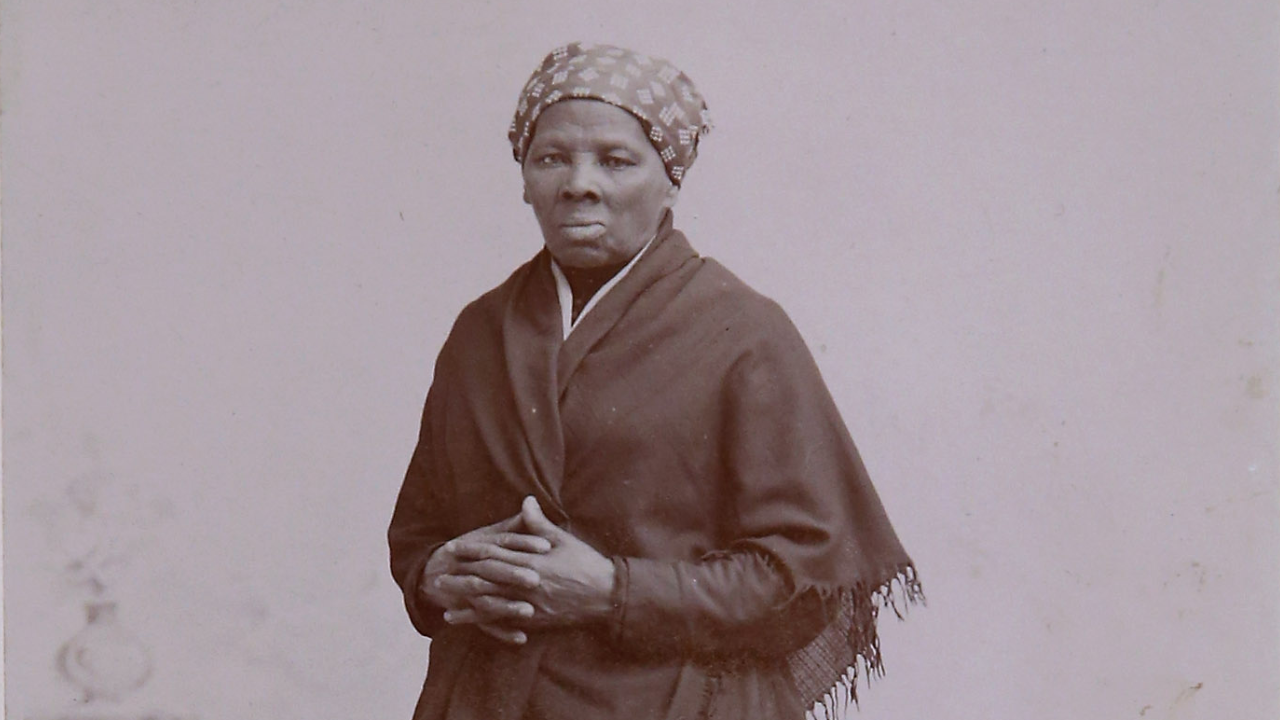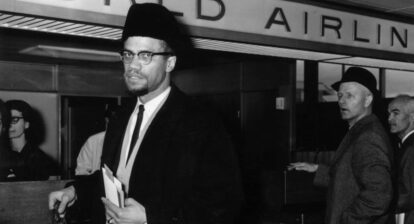
“When we see efforts to erase our history…I think the intention is to try to make the country great or greater…That’s actually going to make us weaker [and] less informed,” said Alan Spear of the National Parks Conservation Association.
Following public backlash, the National Park Service restored a webpage about the Underground Railroad and Harriet Tubman that sanitized some historical facts. But critics of the Trump administration’s snafu tell theGrio it presents a larger concern about the federal government’s role in safekeeping (or not safekeeping) Black history, which is American history.
“It’s very insulting…You can’t alter history like that,” said U.S. Rep. Alma Adams, D-N.C., who is a member of the House Education and Workforce Committee and former educator. Adams told theGrio, “That it is a real blatant attempt to erase African-American history in the United States…when they whitewash in the way that they have.”
An investigation by the Washington Post found that the NPS webpage about the Underground Railroad, an organized network of secret routes and safe houses during slavery, was altered to minimize the emphasis on Tubman’s prominent role in helping enslaved African Americans escape slavery in the South during the 1850s and1860s.
The post found that language about the Underground Railroad was noticeably softened and a prominent image of Tubman was removed. The page also omitted an opening line that said, “The Underground Railroad — the resistance to enslavement through escape and flight, through the end of the Civil War — refers to the efforts of enslaved African Americans to gain their freedom by escaping bondage.”
After restoring the original webpage, a spokesperson for the National Park Service told USA Today, “Changes to the Underground Railroad page on the National Park Service’s website were made without approval from NPS leadership nor Department leadership. The webpage was immediately restored to its original content.”
The National Park Service’s reach and influence on how the American public understands history, particularly Black history, may be understated.
“The National Park Service is the nation’s leading storyteller and historian, and every single park in the national park system–we’ve got over 430 right now–has some responsibility for interpreting, managing, and protecting or preserving historic and cultural resources,” said Alan Spear, senior director of Cultural Resources at the National Parks Conservation Association.
Spears tells theGrio that he believes telling the full truth of America’s dark past as it relates to racism and slavery is critical. “When we see efforts to erase our history…I think the intention is to try to make the country great or greater, but it’s not going to work.” He explained, “That’s actually going to make us weaker, less informed, and probably meaner because we lose information, or the ability to gain information about the diverse nature of our shared national narrative and about all of the people who have contributed to advancing this country to where we are today.”
Congresswoman Adams told theGrio she remains concerned over repeated examples of federal agencies under Trump removing or significantly altering government webpages related to Black historical figures and events. She also decried the Trump administration’s simultaneous efforts to ban so-called DEI in school classrooms, as well as effectively eliminate the Department of Education.

“The next step is to remove from our history books…those things that folks who don’t look like me consider to be painful to them, and they don’t want anybody to know about,” said Rep. Adams, who is a former professor at Bennett College, an HBCU in Greensboro, N.C. “It’s history. It happened. Slavery happened.”
The congresswoman added, “I don’t know what all of that is about other than the fact that it appears that this administration has some real racist views.”
Spears acknowledges that heavier topics about slavery and racial subjugation may not be appropriate for all school children, as some content may be “too graphic” for children of a certain age; however, he said, “You can’t protect children by pretending that adults are kids too.” He said the National Parks Conservation Association is seeing evidence that “Americans want the truth they can handle the truth.”
Spears pointed to the emergence of civil rights museums in the Deep South in recent years, like the Legacy Museum in Montgomery, Miss., which opened in 2018, and the Mississippi Civil Rights Museum, which opened in 2017. “People are hungry for an accurate, inclusive, and inspiring version of our shared national narrative, and we turn to the National Park Service and to National Park interpretive rangers and historians to get that,” he said.
Though Spears acknowledges that some white Americans–who may be more focused on “nostalgia”–may be uncomfortable with discussing historical facts about Black Americans’ treatment in the United States in years past, he said it doesn’t mean it’s not necessary nor possible.
“This nation has done big things. We’ve done important things. We’ve done good things, but there have been many instances when, as Abraham Lincoln might say, we have failed to live up to the better angels of our nature,” he told theGrio. “That’s a part of our shared national narrative too. Hiding that, erasing that doesn’t make us stronger.”
Congresswoman Adams said while she is glad to see that the NPS webpage on Harriet Tubman and the Underground Railroad has been restored, it’s imperative that the public continues to speak out against attempts to whitewash Black history or any other historical events.
“We’ve got to speak up. We’ve got to stand up…I do believe that the public outrage has made a difference and will continue to make a difference, and without it, I think the administration will see themselves as doing a good thing,” said Adams. “It seems to me that they’re ashamed of the things that have happened, and they don’t want people to know about it.”
Ultimately, Adams said preserving history, particularly events that have shaped the Black experience, is critical for the country’s future and overall health.
“If you don’t learn from your history, you’re bound to repeat it. And if it’s a bad thing, you certainly don’t want to repeat it,” she said.
!function(){var g=window;g.googletag=g.googletag||{},g.googletag.cmd=g.googletag.cmd||[],g.googletag.cmd.push(function(){g.googletag.pubads().setTargeting(“has-featured-video”,”true”)})}();





